The Sustainability in the Food Industry Award, presented by The Shelby Report, honors trailblazers reducing environmental impact, supporting communities, and innovating across the food supply chain. This year, we’re spotlighting nominees in four key categories: Retailer Initiatives (e.g., energy-efficient stores and waste reduction), Vendor & Supply Chain Innovations (e.g., carbon-neutral logistics), Sustainable Workforce (e.g., employee training for green practices), and Collaborative Impact & Industry Leadership (e.g., industry-wide coalitions). These forward-thinking companies and organizations are driving real change in how we grow, package, and deliver food – proving sustainability isn’t just a trend, it’s the future.
Discover this years innovators leading the charge in food industry sustainability – from farm to table.
2025 Sustainability Award Winners
-
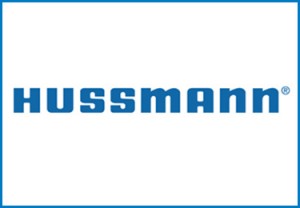 2025 Sustainability in the Food Industry
2025 Sustainability in the Food IndustryHussmann Corp.
St. Louis, Missouri, Hussmann Corp.
Read MoreIn 2024, Hussmann launched Evolve Technologies to create more sustainable refrigeration solutions that use environmentally friendly refrigerants, including R-744 (CO2) and R-290 (propane).
Hussmann is one of the world’s leading manufacturers of refrigerated merchandisers and refrigeration systems – producing, installing and servicing refrigeration solutions that display and preserve fresh foods in more than 250,000 supermarkets and convenience stores in the United States.
Evolve Technologies leverage low GWP refrigerants that are regulatory compliant and essential for the future of refrigeration. Globally, refrigeration and air conditioning contribute to about 10 percent of CO2 emissions. The company supports the U.S. EPA GreenChill Partnership in its efforts to recognize food retailers that reduce refrigerant emissions and decrease their impact on the ozone layer and climate change.
Hussmann even expanded its production capacity for transcritical CO2 refrigeration systems in its Suwanee, Georgia, facility and increased capacity for its self-contained R-290 (propane) line of products. As part of its Evolve Technologies portfolio, Hussmann also launched countless new refrigeration systems and merchandisers, including the award-winning Monoblock, an outdoor condensing unit, Protocol CO2 Rack and AIM Act compliant merchandisers.
In addition, Hussmann created the Evolve Experience – a mobile roadshow to further expand the education and reach of its sustainable vision. The experience visited customers and retailers to provide stewardship and training on low GWP solutions for the food retailing industry.
The Evolve Experience is a hybrid classroom featuring the latest CO2 and R-290 solutions with equipment for hands-on learning, including outdoor condensing units, controllers and leak detection technology. Hussmann teaches techs how to work on these new, sustainable refrigerants. The impact of the Evolve Experience includes 10,245 miles traveled, 19 cities visited, 563 attendees and 24 retailers.
-
 2025 Sustainability in the Food Industry
2025 Sustainability in the Food IndustryImperial Distributors
Worchester, Massachusetts, Imperial Distributors
Read MoreThe SEEDS Committee (Sustainable, Environmental and Energy Development Squad) at Imperial Distributors is a passionate, action-driven team dedicated to advancing sustainability, reducing environmental impact and inspiring its community to embrace eco-friendly practices. Its initiatives combine measurable results with creativity, education and employee engagement.
The committee launched a thriving community garden built entirely from repurposed pallets and totes, turning reclaimed materials into productive raised beds. This season, the team started its seeds indoors before transplanting them outside, allowing it to extend the growing season and ensure healthy, strong plants.
The SEEDS Committee cultivated organic cucumbers, tomatoes, kale and peppers, all watered using a collected rain bucket system to reduce reliance on municipal water and further lower its environmental footprint. Freshly harvested produce is raffled in baskets to team members, promoting healthy eating while reducing the environmental impact of food production.
On March 18, the committee hosted Global Recycling Day, holding an educational session in the cafeteria to teach team members what can be recycled in an office environment and the warehouse.
This hands-on learning opportunity helped improve its recycling accuracy and reduce contamination, ensuring more materials are truly diverted from landfills.
In April, the SEEDS Committee celebrated Earth Day with a high-energy fair featuring a compost vendor, a carbon blueprint station to help people measure their environmental impact and other local vendors.
It also held a company store showcasing eco-friendly products such as reusable containers, bamboo utensils, plant-based nutrition bars, natural shampoos, toothpaste and bamboo toothbrushes – offering team members tangible tools to reduce waste and embrace sustainable living in their daily routines.
The SEEDS Committee also hosted Bee Day on May 20, where a beekeeper discussed pollinator importance, biodiversity and conservation, while sharing locally sourced honey samples.
The committee’s first Farmers Market in July brought together local and sustainable businesses, including a local farmer, honey producers and goat soap and soy candle makers. The SEEDS Committee’s impact is not only cultural but quantifiable. In 2024, it achieved:
• 225 trees saved;
• 253 barrels of soil preserved;
• 21,937 kilowatts of energy saved;
• 843 gallons of water conserved;
• 140 cubic meters of landfill avoided; and
• 28,125,000 metric tons of carbon equivalent. -
 2025 Sustainability in the Food Industry
2025 Sustainability in the Food IndustryInline Plastics
Shelton, Connecticut, Inline Plastics
Read MoreInline Plastics is setting a new standard in sustainable packaging by backing bold environmental commitments with transparent, measurable actions. Sustainability is embedded across the company’s operations – from product innovation and manufacturing to consumer education and industry collaboration.
A key milestone is the integration of 10 percent post-consumer recycled content across Inline’s entire polyethylene terephthalate packaging line. This initiative has helped divert more than 5 billion water bottles from landfills and oceans, while reducing reliance on virgin plastic. The company’s long-term strategy is to increase PCR content further, while navigating the current limitations of the global recycling infrastructure.
Inline Plastics also pioneered rDPET, a proprietary material introduced through its “Reborn” initiative. rDPET leverages chemically recycled PET with 10 percent PCR content and is manufactured using a process that cuts energy use by more than 50 percent compared to conventional methods – making it the lowest carbon footprint PET material in the market today.
To ensure accountability, Inline underwent third-party certification by SCS Global Services, validating its use of 10 percent post-consumer recycled (PCR) content throughout its PET portfolio. This third-party verification reinforces the company’s commitment to transparency and builds trust across the supply chain.
Inline’s commitment extends to empowering and educating consumers by simplifying the recycling process through participation in the How2Recycle (H2R) labeling program.
This standardized labeling system provides clear, consistent instructions on how to properly dispose of packaging, helping to reduce contamination and improve recycling rates. All products are pre-qualified with H2R, providing clear disposal guidance and helping improve recycling outcomes nationwide.
Despite challenges such as limited high-quality PCR supply and a fragmented recycling infrastructure, Inline embraces collaboration as a catalyst for change. Through partnerships with suppliers, recyclers’ industry groups, the company is helping to strengthen and promote a circular economy.
As Inline Plastics looks ahead, its vision is to expand recycled content, innovate with materials that have a low carbon footprint, reduce food waste through smarter packaging – all while remaining a credible, data-driven leader in environmental stewardship.
-
 2025 Sustainability in the Food Industry
2025 Sustainability in the Food IndustryK-VA-T Food Stores, d/b/a Food City
Abingdon, Virginia, K-VA-T Food Stores, d/b/a Food City
Read MoreFood City is dedicated to enhancing sustainability across various aspects of its operations. Food City’s initiatives span from local produce sourcing to energy-efficient store designs, all aimed at reducing its environmental footprint and promoting sustainable practices.
Food City purchases more than $5 million in locally grown produce annually, reducing transportation needs and supporting local farmers. Its partnerships with more than 20 farms across several states have positively impacted local communities.
For instance, Food City’s tomato partner, Red Sun, uses innovative water systems and integrated pest management to minimize water use and eliminate the need for herbicides. Additionally, Free Leafy Greens in Ohio employs sustainable growing processes to ensure the safety and quality of its produce.
Food City sources sustainable seafood and grass-fed beef from certified suppliers. Thomas Foods International USA, one of its beef suppliers, uses solar energy and recycling efforts to minimize its environmental impact.
Wampler’s Farm Sausage, another key partner, has achieved net-zero energy use through solar arrays and the Proton Power CHyP system. Food City also offers plantbased meat alternatives from Beyond Meat, which require less land and produce fewer greenhouse gas emissions.
Food City’s new store locations feature energy-saving concepts, including LED lighting, energy-efficient refrigeration and HVAC systems. It also is investing in solar energy, with one solar array in operation. Motion sensors and energy-efficient doors further enhance stores’ energy efficiency.
Food City is committed to reducing waste through various initiatives. It uses reusable plastic containers (RPCs) for fresh products, recycles significant amounts of cardboard, metal and plastic and participates in composting programs.
Food City’s food waste reduction efforts include donations to local food pantries and community organizations. In 2024, it donated more than $2.8 million through various initiatives and raised over $4.4 million for community support.
Food City operates a fleet of 140-plus hybrid vehicles, significantly reducing fuel emissions. Its dynamic routing system has reduced the total miles traveled and the number of trips, contributing to lower emissions.
Food City hosts annual Earth Day initiatives and encourages sustainability among employees and customers. It also promotes digital policies to reduce paper use and continues to educate its employees on sustainability practices.
-
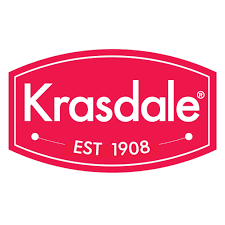 2025 Sustainability in the Food Industry
2025 Sustainability in the Food IndustryKrasdale Foods
West Harrison, New York, Krasdale Foods
Read MoreIn 2023, Krasdale Foods, a 117-year-old family-owned grocery distribution company, partnered with PowerFlex to launch the largest solar energy installation in the Bronx, New York – a 2.7mw community solar system atop its Hunts Point warehouse.
This landmark project not only powers Krasdale’s operations but also shares environmental and financial benefits with the local community. The initiative allows about 300 Bronx residents to subscribe and receive credits on their electricity bills, making clean energy accessible to homeowners, renters and business owners who cannot install solar panels themselves.
The system has generated about 3.4 million kWh annually, offsetting carbon emissions equivalent to powering more than 300 homes or preserving 2,850 acres of forest. Praised by Mayor Eric Adams for addressing pollution in Hunts Point, the project exemplifies private-public collaboration in advancing climate goals.
Gus Lebiak, Krasdale’s president and COO, emphasized the company’s commitment to community and sustainability, while Raphael Declercq, CEO of PowerFlex, highlighted the project’s role in creating a cleaner future. Doreen M. Harris of NYSERDA recognized the effort as a model for national community solar leadership.
Krasdale’s solar initiative reflects its enduring mission to uplift communities and support independent grocers across the Northeast and Florida, including banners such as CTown, Bravo and Market Fresh. This project stands as a beacon of environmental stewardship and community empowerment.
-
 2025 Sustainability in the Food Industry
2025 Sustainability in the Food IndustryLuker Chocolate
Bogotá, Colombia, Luker Chocolate
Read MoreLuker Chocolate’s sustainability impact is anchored in The Chocolate Dream, a sustainability plan designed to transform the entire cocoa value chain through collaboration.
Rather than a single initiative, the Chocolate Dream is a long-term, co-created strategy that unites farmers, NGOs, academic institutions, governments, private companies and global clients to address the economic, social and environmental challenges of cocoa production.
Luker works with more than 15,000 cocoa farmers across Colombia. Within this broader network, the Chocolate Dream directly supported 4,320 cocoa-farming families in 2024 through 27 active projects across six regions.
The plan advances measurable progress across three pillars:
• Economic resilience – Luker supports farmers with training, post-harvest improvements and entrepreneurship programs that increase profitability and income diversification. By 2024, 1,397 families saw incomes rise by 12 percent compared to the 2021 baseline (excluding price variables), advancing toward the 2027 goal of 1,500 families with a 20 percent increase.
• Social well-being – Education, entrepreneurship and human rights initiatives strengthened the quality of life for 4,320 families in 2024. These efforts are helping children and youth develop skills for brighter futures and empowering women and young people to lead in their communities – on track toward a 2027 goal of 5,000 families with improved well-being.
• Environmental stewardship – Projects promote regenerative agriculture, biodiversity, water conservation and forest protection. By 2024, 12,408 hectares were under environmentally positive practices, marking progress toward the 2027 goal of 15,000 hectares.
Investment is a key marker of the plan’s impact. In 2024, Luker dedicated 6 percent of earnings before interest, taxes, depreciation and amortization to the Chocolate Dream.
By embedding sustainability at origin and co-creating solutions with local communities, Luker Chocolate demonstrates how the cocoa industry can evolve.
The Chocolate Dream is more than a commitment to farmers – it is a collaborative roadmap for transforming cocoa into a driver of prosperity, resilience and shared value across the global chocolate supply chain.
-
 2025 Sustainability in the Food Industry
2025 Sustainability in the Food IndustryMasser Family of Companies
Sacramento, Pennsylvania, Masser Family of Companies
Read MoreSterman Masser Potato Farms has been growing and delivering quality potatoes to America’s finest retailers and foodservice operators for more than eight generations. It combines generations of farming expertise with advanced technology, sustainable agriculture and innovative supply chain practices to drive profitable category growth while protecting its environment.
Sustainability is at the heart of everything the company does. It is deeply committed to respecting, protecting and enhancing natural resources. Its robust environmental stewardship programs actively reduce its carbon footprint while improving product quality and efficiency.
Key initiatives include:
- Zero waste potato utilization: Through Keystone Potato Products, 100 percent of all potatoes are used. Non-retail potatoes are processed into flits, flakes, dices and fries. Remaining byproducts become animal feed, ensuring nothing is wasted.
- Water reclamation: Keystone uses non-potable water from underground mines, treated on-site for food production, reducing reliance on fresh water.
- Renewable energy: Keystone captures methane from a nearby landfill to power steam generation, offsetting non-renewable fuel use. Many of its buildings are powered by a 1mw solar farm.
- Advanced farming practices: Keystone uses precision agriculture, modern irrigation, soil fertility management, integrated pest management and conservation agronomics across 5,000-plus acres of potatoes, wheat, corn and soybeans.
- Energy-efficient facilities: All plants, warehouses and storage facilities have been upgraded with energy-efficient lighting, HVAC and automation to minimize energy use and waste.
- Sustainable packaging: Keystone uses BioFlex sustainable packaging that accelerates biodegradation in landfills and contributes significantly more energy recovery than conventional plastics.
- Transportation innovation: Its Masser Logistic Services fleet features aerodynamic fuel-efficient cabs, solar-powered APU units and emissions control equipment to reduce its carbon footprint. It maintains the highest standards of food safety and quality assurance, backed by SQF, USDA Organic and Kosher certifications.
Through continuous improvement and innovation – across equipment, robotics, packaging, transportation and partnerships like Fresh Solutions Network – Keystone ensures its sustainability efforts are measurable, scalable and designed to benefit future generations.
-
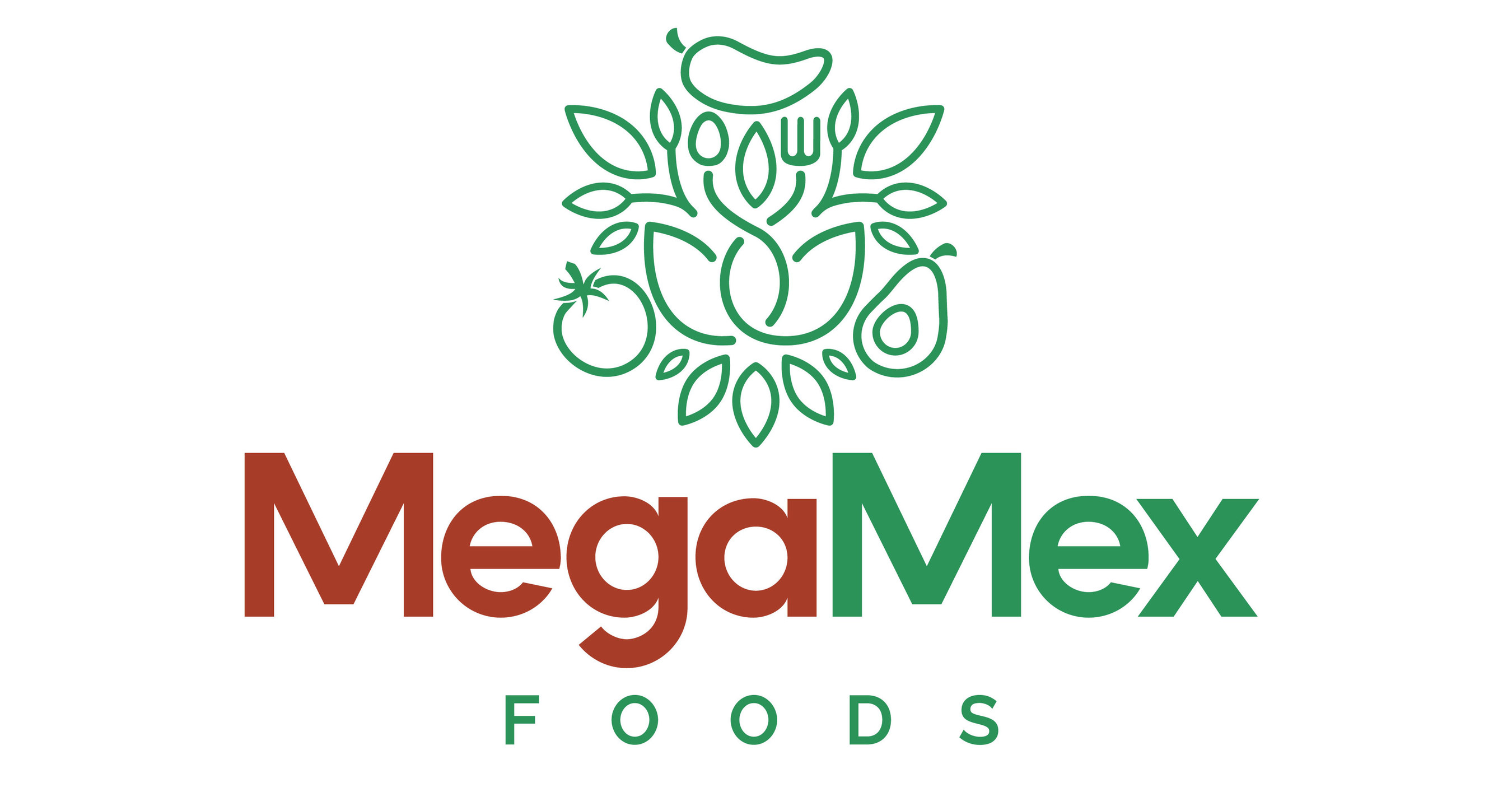 2025 Sustainability in the Food Industry
2025 Sustainability in the Food IndustryMegaMex Foods
Orange, California, MegaMex Foods
Read MoreTo respond to increasing drought and water stress, MegaMex Foods’ primary facility has installed an infrastructure that allows for nearly 70 percent of the water used to be recycled back to drinking-water quality.
This water reuse project helps to mitigate the risk associated with chronic water shortages in the state in which the facility is located while addressing increasing water costs.
The project’s goal was to install an on-site system that allows for the treatment and reuse of water, resulting in a 40 percent – or 26 million gallon – reduction in water demand from the community.
Importantly, the project also addresses the community’s water availability by reducing the impact of MegaMex Foods’ operation to the overall water supply.
A study of the water quality and characteristics was conducted to determine the most effective combination of chemical and filtration mediums needed to achieve the necessary water quality.
In addition to having a direct positive impact on MegaMex Foods’ operation, the project positively impacts the community in which the facility operates. The company is delivering on its commitment to be good stewards of the environment while continuing to support meaningful projects that positively impact the community.
-
 2025 Sustainability in the Food Industry
2025 Sustainability in the Food IndustryNatural Grocers
Lakewood, Colorado, Natural Grocers
Read MoreNatural Grocers believes access to science-based nutrition education is essential to building a healthier,more sustainable world. As the only national grocery retailer with a full-time, in-store nutritional health coach(NHC) in nearly every location, it has created a replicable model for delivering personalized, actionable education – right where food choices happen.
Nutrition education is one of Natural Grocers’ five founding principles and central to its mission to empower lasting change. By investing in education as a core offering, not a peripheral service, Natural Grocers advances community well-being, environmental responsibility and accessible health support.
Scalable model for in-store and community wellness
- NHCs are trained professionals who receive 164-plushours of continuing education annually, staying at the forefront of nutrition science and wellness trends.
- They offer free one-on-one coaching and personalized shopping support to customers and employees, giving practical guidance to improve health and lessen their environmental footprint.
- Complimentary nutrition education presentations engage customers and support the communities we serve.
- Education is delivered at the point of purchase,turning knowledge into daily action.
- Booking time with an NHC is simple – online, over the phone or in-store. Services are available to anyone pursuing wellness goals.
Strengthening communities through shared knowledge
NHCs lead free classes,workshops and community outreach programs,including the annual class series, “Three Essential Hacks to a Healthier You,” designed to inspire lasting lifestyle changes and support overall wellbeing. By making education approachable and accessible,it helps customers shift behaviors in meaningful, sustainable ways.
Blueprint for industry-wide impact
In a retail landscape focused on convenience and speed, Natural Grocers champions human connection and trusted expertise. Its nutrition education program offers a working model for embedding wellness, collaboration and sustainability into retail operations at scale.
This unique program creates a ripple effect – supporting healthier people, stronger communities and a food system aligned with long-term well-being. It’s a model built to share, adapt and inspire across the industry.
-
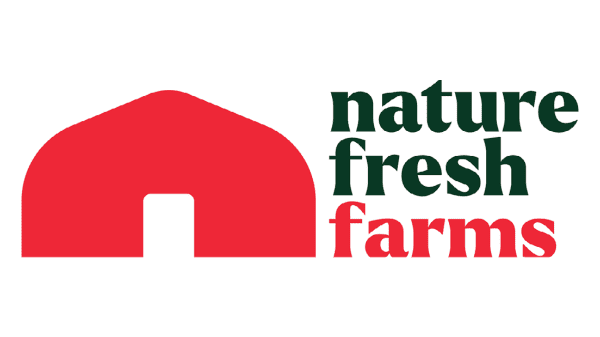 2025 Sustainability in the Food Industry
2025 Sustainability in the Food IndustryNature Fresh Farms
Leamington, Ontario, Canada, Nature Fresh Farms
Read MoreNature Fresh Farms is committed to creating meaningful sustainability impacts by focusing on reducing waste, finding innovative solutions and supporting communities. One of its largest initiatives is the use of an edible waste biodigester, which has digested more than 2,300 metric tons of food waste, transforming it into energy and fertilizer.
In addition, Nature Fresh Farms is piloting new farm-level waste solutions to ensure that the food it grows continues to serve a purpose beyond its greenhouses when it does not meet the quality standards for packaging.
While farm-level waste has traditionally gone to landfill, Nature Fresh Farms is working with an organization that repurposes produce into new products such as tomato paste for soup kitchens – helping address both food waste and food insecurity. It also ensures that inedible waste is redirected to local farmers, where it can be used as feed, keeping valuable nutrients within the agricultural system rather than being lost to landfill.
In 2024 alone, at Nature Fresh Farm’s Ohio facility, the company successfully diverted 227 metric tons of food waste from landfill to alternative uses. This measurable impact demonstrates its dedication to closing the loop on waste, supporting local communities and leading with innovative approaches that reduce environmental impact while feeding more people.
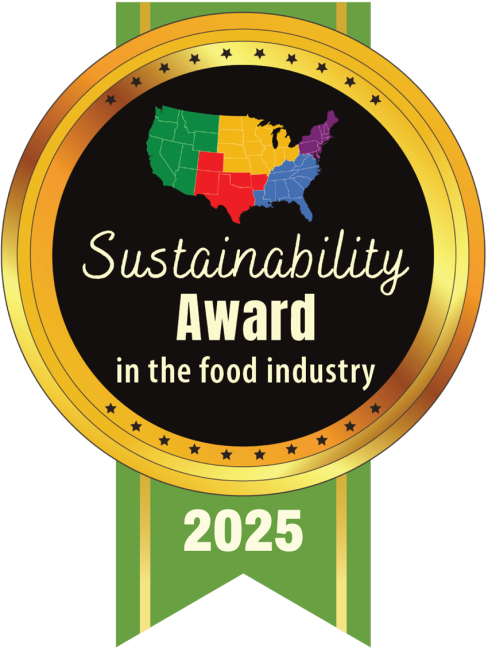
Presented by The Shelby-Griffin Report
The Shelby Report is the grocery industry’s leading news source, serving the food supply chain since 1967. With decades of in-depth journalism and strategic partnerships with NGA and FMI, we are dedicated to educating and informing the industry. We are proud to present this award to honor sustainability leaders.
